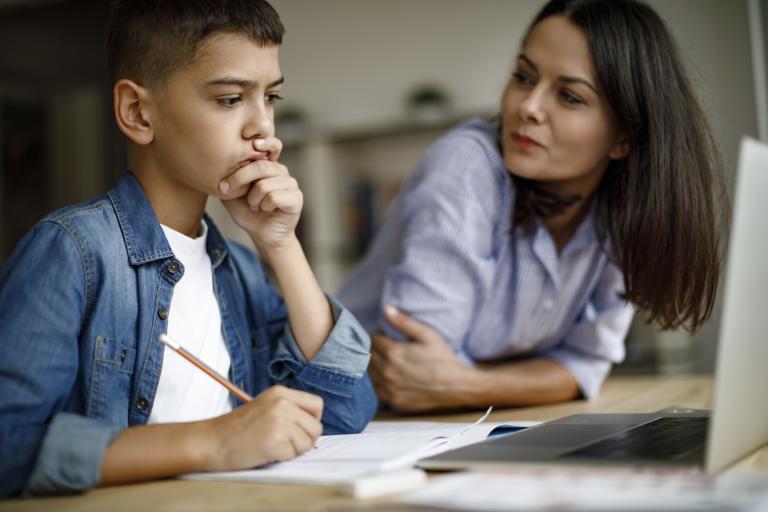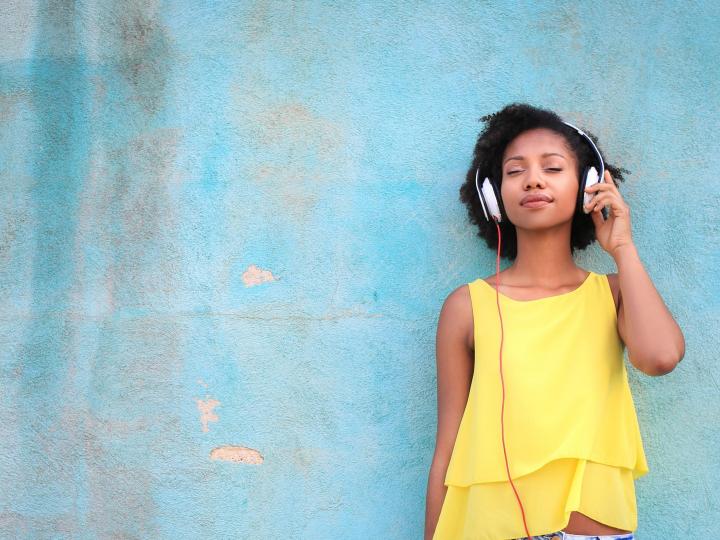It doesn’t matter who you are, where you come from or what you look like: all people are equal. This is why the government must do everything in its power to protect you from discrimination and ensure that all children and young people can exercise their rights.
Do adults make decisions that have a lot of influence on your life? If so, they need to first find out what’s best for you. Your best interests must be a key factor in the decision. If your parents – or the people responsible for you – are unable to care for you properly, it’s the government’s duty to help your parents or carers.
Every child has a right to life. It’s the government’s duty to ensure that you can survive and are able to develop properly.
From the moment you’re born, you have a right to a first name and surname and a nationality. These must be recorded by the local municipality where you were born. This also applies to the place where you were born and your parents’ details. Your name, nationality and family say a lot about who you are as a person. Together, they form your identity. Every child’s identity must be protected by the government and simply changing it is not allowed.
Every child has the right to know who their parents are and to live and grow up with them. If that’s not possible, you still have the right to stay in contact with both your parents. If a situation develops that’s not good for you or could even be unsafe, the court can stop your parents from seeing or speaking to you, at least for a while.
As a child, you’re free to think whatever you want and can express your opinion about anything. Especially about the things that matter to you. Adults who have to make a decision about you also need to ask for your opinion and listen to it. But you also need to take account of other people’s rights. That means that you’re not allowed to abuse or insult someone or discriminate against them.
In order to form an opinion of your own, information is very important. This is why the government must ensure that you have access to books, newspapers, radio, TV and/or the internet. It’s also the government’s duty to protect you from information that’s not good for you. This includes shocking images, hate speech or photographs and videos of naked people.
Whether your parents are religious or not, it’s up to you to decide if you are. You have the right to choose a religion of your own or to decide that religion is not for you. If you’re religious, you have a right to practice your faith at home and elsewhere, for example by praying or wearing a headscarf.
If you’re having doubts, you can ask your parents or carers questions about this. And you have a right to change your mind at any time.
Whatever your age, you always have a right to privacy. At home, for example, but also online. You definitely don’t need to tell other people everything that you think or know. That’s unless something really bad is happening, of course. But some other things are simply private. No one has a right to read your personal messages, such as texts, WhatsApp messages or emails that you write or receive, without your consent.
Parents must ensure that their children have a good upbringing. The government has a duty to provide support if it’s needed. There are various organisations and specialists who can help. Working parents are also entitled to childcare allowance for one or several days every week.
All children have a right to a safe home and definitely must not be mistreated, abused or neglected. Parents or carers must treat you well and give you sufficient love and attention. It’s up to the government to make it clear that children must not be mistreated. If children are mistreated, they must be given immediate help by the government.
As a child, you must be able to grow up healthily and have a right to good care. If you’re ill, injured or have mental health problems, there must be sufficient hospitals, doctors and psychologists in the local area and you deserve appropriate treatment. The government has a duty to provide children and parents with proper information about health and any risks.
Every child must receive enough food, drink and clothing and have a house to live in. You must also have sufficient space and get help to learn what’s good for you. Your parents or carers are responsible for this. If they aren’t able to offer it, the government has a duty to help them.
All children have a right to go to school and countries must help each other to ensure that every child can go to school. Primary education must be free for everyone. If you want to, you must also have the opportunity to receive secondary and higher education. Teachers are not allowed to shout abuse at children and definitely not hit them or swear at them.
Every child has a right to leisure time, to engage in sports or play games. It also needs to be possible for all children to take part in cultural activities.
If you do anything that’s against the law, you may come into contact with the police. If it’s serious, the court may even decide to punish you. For children, different rules apply than for adults. For example, courts and police officers must take your age into account. They’re not allowed to question you or pressure you to say something without a lawyer also being present. Or at least someone else that you trust.
Children cannot simply be arrested or locked up. But if that does happen, you don’t need to say anything until a lawyer is there. The police are only allowed to lock you up if there’s no other choice and for as short a time as possible. You also always have the right to contact your family. If you do receive a punishment, it’s important that you can continue your life as normal afterwards. It’s absolutely forbidden to punish children by hitting them or causing pain in any other way.
Children’s rights
In 1989, world leaders adopted the United Nations Convention on the Rights of the Child. Nearly all the countries in the world - including the Netherlands - have signed this Convention. It describes in 54 articles all children’s rights under the law. You can read the full text of the Convention on the Rights of the Child in the Blue Booklet. General Comment No. 14 includes information on the best interests of the child.

Explanation regarding the best decision for children
Sometimes, adults make important decisions concerning you. The adult could be your teacher, the police or a care provider. The decision could be about where you’ll live, what sort of help you’ll get or what school you’ll go to. You have a right to give your opinion on important decisions about your life. The Ombudsman for Children helps you choise what to do!
